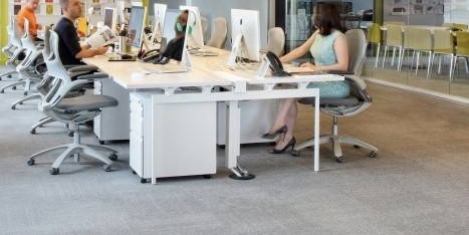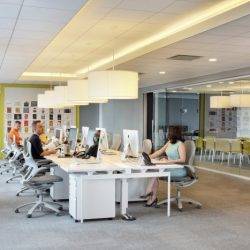March 23, 2017
Employers blame gender pay gap on career breaks and part-time work 0

Over a quarter (29 percent) of senior managers within UK enterprises do not see the gender pay gap as an issue for businesses and many believe the gap is partly due to women’s personal career decisions, a new survey claims. Research by NGA Human Resources (NGA HR) found that despite the UK gender pay gap sitting at 13.9 percent, only 17 percent of decision makers surveyed believe that regulations on gender splits will reduce the divide. Nearly half (49 percent) of senior leaders in businesses blame the disparity on the fact that women are more likely to take career breaks or work part-time (42 percent) as the main factors for pay disparities. Other reasons given for the gender pay gap are the lack of representation of women in the overall workforce (20 percent) and fewer women in senior management positions (27 percent).














 Gig economy workers are as likely to be satisfied with their work as workers in traditional employment, according to a major new survey published today by the CIPD which provides the first robust estimate of the size of the gig economy. Currently, 4 percent of UK working adults aged between 18 and 70 are working in the ‘gig economy’, which means approximately 1.3 million people are engaged in ‘gig work’ according to ‘To gig or not to gig: Stories from the modern. The report, which is based on a survey of 400 gig economy workers and more than 2,000 other workers, as well as 15 in-depth interviews with gig economy workers found that nearly two-thirds (63 percent) believe the Government should regulate to guarantee them basic employment rights and benefits such as holiday pay. But the research also found that, contrary to much of the rhetoric, just 14 percent of respondents said they did gig work because they could not find alternative employment.
Gig economy workers are as likely to be satisfied with their work as workers in traditional employment, according to a major new survey published today by the CIPD which provides the first robust estimate of the size of the gig economy. Currently, 4 percent of UK working adults aged between 18 and 70 are working in the ‘gig economy’, which means approximately 1.3 million people are engaged in ‘gig work’ according to ‘To gig or not to gig: Stories from the modern. The report, which is based on a survey of 400 gig economy workers and more than 2,000 other workers, as well as 15 in-depth interviews with gig economy workers found that nearly two-thirds (63 percent) believe the Government should regulate to guarantee them basic employment rights and benefits such as holiday pay. But the research also found that, contrary to much of the rhetoric, just 14 percent of respondents said they did gig work because they could not find alternative employment.





















